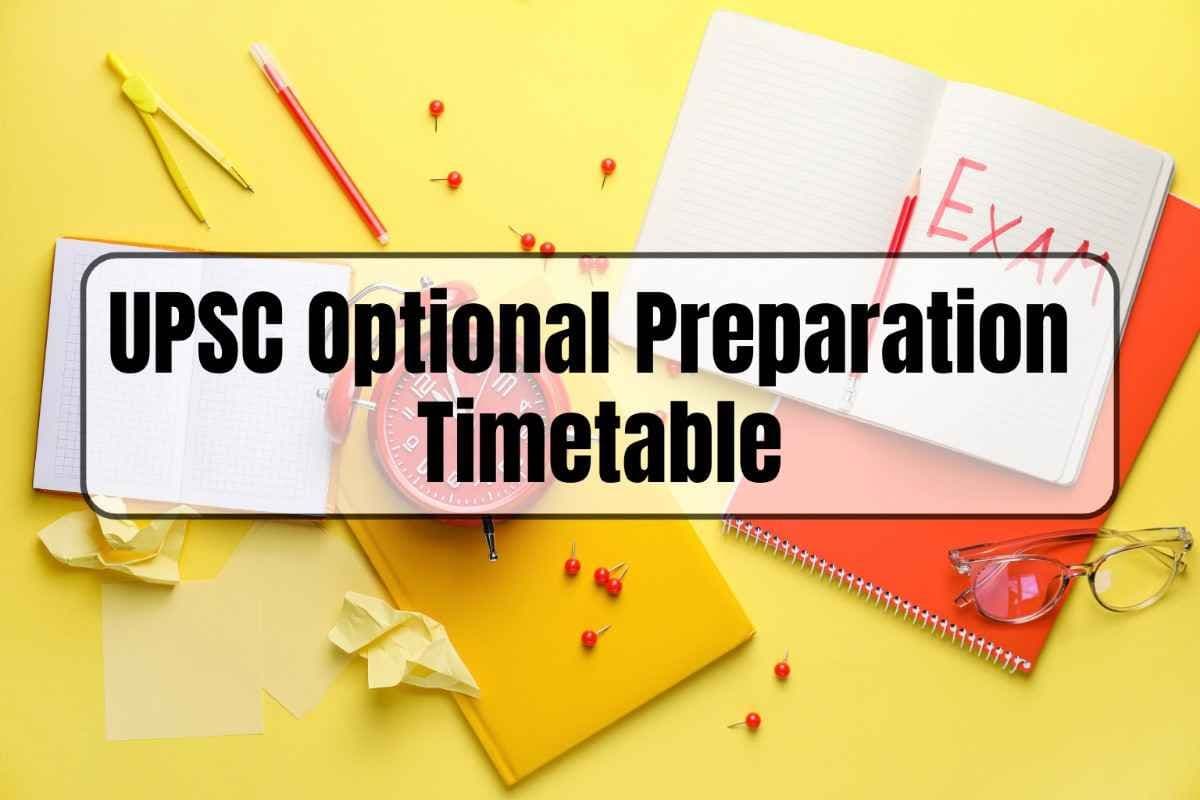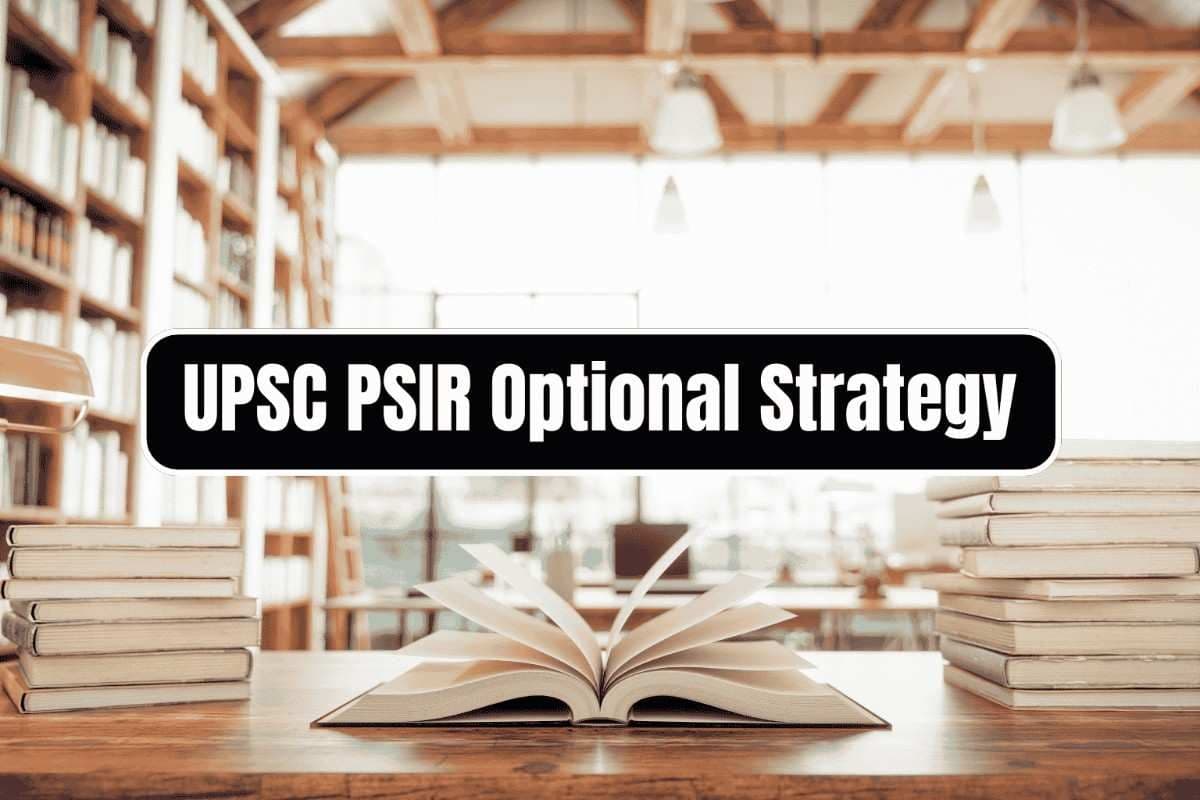UPSC Mains Public Administration Optional: Syllabus, Paper Pattern & Booklist
Aug, 2025
•6 min read
If you’re thinking about taking Public Administration as your UPSC optional, you’re on the right track. It’s a subject that’s short, easy to connect with, and directly linked to the work you’ll do as a civil servant.
The overlap with General Studies and Essay means less pressure and more efficient preparation. This guide will walk you through the complete syllabus for Papers I & II, explain the paper pattern, and suggest the best books to study from. Also, see how using SuperKalam’s instant Mains answer evaluation can help you write better answers and boost your score.
Why Public Administration is the Right Optional for You in UPSC Mains
As per the 72nd UPSC Annual Report 2021-22, the success rate for Public Administration stands at an impressive 7.2%, one of the better-performing optionals in recent years. That means a good number of aspirants who chose this subject were able to clear the exam successfully. But more than numbers, here’s why Public Administration could be the right fit for you:
- Compact Syllabus – Shorter than many other optionals, making revision easier and faster.
- GS & Essay Overlap – Significant portions directly help in GS Paper II, GS Paper IV, and the Essay.
- Practical Relevance – Builds understanding of governance, policies, and administration—skills you’ll use as a civil servant.
- Easy to Relate – Most topics are rooted in real-life governance issues, making them easier to grasp.
- Scoring Potential – With clear concepts and structured answers, it’s possible to score well.
- Useful for Interview – The subject knowledge helps you handle administration-related questions confidently in the Personality Test.
In short, Public Administration gives you both exam benefits and practical knowledge for your future role in the services. Now, let’s understand the Pub Ad. paper structure.
Public Administration Optional Paper Structure for UPSC Mains
The Public Administration Optional in UPSC Mains is divided into two papers:
- Paper I and Paper II
- Each paper carries 250 marks
- The duration for each paper is 3 hours
- Both papers are descriptive and held on the same day in two separate sessions
Question Paper Format & Important Instructions
Public Administration papers I & II follow a specific structure and set of instructions. Here's what you need to know:
There are a total of 8 questions, divided into 2 Sections – A and B.
The question paper is printed in both Hindi and English.
You must attempt 5 questions in total.
Question 1 (from Section A) and Question 5 (from Section B) are compulsory.
Out of the remaining questions, you need to attempt three more, choosing at least one question from each section.
The marks assigned to each question or section are mentioned alongside the question
Answers must be written in the language (medium) you selected in your UPSC application.
Answers written in any other medium will not be evaluated.
Follow the word limit as specified in the questions.
Questions will be counted in the order they are attempted. Even partially attempted questions will be counted, unless they are properly struck off.
Tip: Your score depends as much on how you write as on what you know. Practice answer writing regularly using previous years’ questions and quality mock tests. Always stick to the word limit.
To make your practice more effective, use the SuperKalam Mains Evaluation Tool. It gives you fair, UPSC-standard feedback in just 1 minute, so you can spot mistakes and improve immediately instead of waiting days for reviews. See how it works:

UPSC Mains Public Administration Complete Syllabus – Paper I & II
Below is the complete syllabus for Papers I & II, as prescribed by UPSC.
PUBLIC ADMINISTRATION PAPER I
Administration Theory
1. Introduction: Meaning, scope and significance of Public Administration, Wilson’s vision of Public Administration, Evolution of the discipline and its present status. New Public Administration, Public Choice approach; Challenges of liberalization, Privatisation, Globalisation; Good Governance: concept and application; New Public Management.
2. Administrative Thought: Scientific Management and Scientific Management movement; Classical Theory; Weber’s bureaucratic model its critique and post-Weberian Developments; Dynamic Administration (Mary Parker Follett); Human Relations School (Elton Mayo and others); Functions of the Executive (C.I. Barnard); Simon’s decisionmaking theory; Participative Management (R. Likert, C. Argyris, D. McGregor.)
3. Administrative Behaviour: Process and techniques of decision-making; Communication; Morale; Motivation Theories content, process and contemporary; Theories of Leadership: Traditional and Modem.
4. Organisations: Theories systems, contingency; Structure and forms: Ministries and Departments, Corporations, Companies; Boards and Commissions; Ad hoc, and advisory bodies; Headquarters and Field relationships; Regulatory Authorities; Public-Private Partnerships.
5. Accountability and Control: Concepts of accountability and control; Legislative, Executive and judicial control over administration; Citizen and Administration; Role of media, interest groups, voluntary organizations; Civil society; Citizen’s Charters; Right to Information; Social audit.
6. Administrative Law: Meaning, scope and significance; Dicey on Administrative law; Delegated legislation; Administrative Tribunals.
7. Comparative Public Administration: Historical and sociological factors affecting administrative systems; Administration and politics in different countries; Current status of Comparative Public Administration; Ecology and administration; Riggsian models and their critique.
8. Development Dynamics: Concept of development; Changing profile of development administration; ‘Anti-development thesis’; Bureaucracy and development; Strong state versus the market debate; Impact of liberalisation on administration in developing countries; Women and development the self-help group movement.
9. Personnel Administration: Importance of human resource development; Recruitment, training, career advancement, position classification, discipline, performance appraisal, promotion, pray and service conditions; employer-employee relations, grievance redressal mechanism; Code of conduct; Administrative ethics.
10. Public Policy: Models of policy-making and their critique; Processes of conceptualisation, planning, implementation, monitoring, evaluation and review and their limitations; State theories and public policy formulation.
11. Techniques of Administrative Improvement: Organisation and methods, Work study and work management; e-governance and information technology; Management aid tools like network analysis, MIS, PERT, CPM.
12. Financial Administration: Monetary and fiscal policies: Public borrowings and public debt. Budget types and forms; Budgetary process; Financial accountability; Accounts and audit.
PUBLIC ADMINISTRATION PAPER II
Indian Administration
1. Evolution of Indian Administration: Kautilya Arthashastra; Mughal administration; Legacy of British rule in politics and administration Indianization of Public services, revenue administration, district Administration, local self Government.
2. Philosophical and Constitutional framework of Government: Salient features and value premises; Constitutionalism; Political culture; Bureaucracy and democracy; Bureaucracy and development.
3. Public Sector Undertakings: Public sector in modern India; Forms of Public Sector Undertakings; Problems of autonomy, accountability and control; Impact of liberalization and privatization.
4. Union Government and Administration: Executive, Parliament, Judiciary-structure, functions, work processes; Recent trends; Intragovernmental relations; Cabinet Secretariat; Prime Minister’s Office; Central Secretariat; Ministries and Departments; Boards; Commissions; Attached offices; Field organizations.
5. Plans and Priorities: Machinery of planning; Role, composition and functions of the Planning Commission and the National Development Council; ‘Indicative’ planning; Process of plan formulation at Union and State levels; Constitutional Amendments (1992) and decentralized planning for economic development and social justice.
6. State Government and Administration: Union-State administrative, legislative and financial relations; Role of the Finance Commission; Governor; Chief Minister; Council of Ministers; Chief Secretary; State Secretariat; Directorates.
7. District Administration since Independence: Changing role of the Collector; Union-State-local relations; Imperatives of development management and law and order administration; District administration and democratic decentralization.
8. Civil Services: Constitutional position; Structure, recruitment, training and capacity building; Good governance initiatives; Code of conduct and discipline; Staff associations; Political rights; Grievance redressal mechanism; Civil service neutrality; Civil service activism.
9. Financial Management: Budget as a political instrument; Parliamentary control of public expenditure; Role of finance ministry in monetary and fiscal area; Accounting techniques; Audit; Role of Controller General of Accounts and Comptroller and Auditor General of India.
10. Administrative Reforms since Independence: Major concerns; Important Committees and Commissions; Reforms in financial management and human resource development; Problems of implementation.
11. Rural Development: Institutions and agencies since Independence; Rural development programmes: foci and strategies; Decentralization and Panchayati Raj; 73rd Constitutional amendment.
12. Urban Local Government: Municipal governance: main features, structures, finance and problem areas; 74th Constitutional Amendment; Global-local debate; New localism; Development dynamics, politics and administration with special reference to city management.
13. Law and Order Administration: British legacy; National Police Commission; Investigative agencies; Role of Central and State Agencies including para military forces in maintenance of law and order and countering insurgency and terrorism; Criminalisation of politics and administration; Police-public relations; Reforms in Police.
14. Significant issues in Indian Administration: Values in public service; Regulatory Commissions; National Human Rights Commission; Problems of administration in coalition regimes; Citizen administration interface; Corruption and administration; Disaster management.
Also read: Scoring Top Optional Subjects for UPSC Mains Exam
Books & Resources to Master Public Administration Optional for UPSC
Now that you know the complete Public Administration Optional syllabus, it’s time to focus on the right study material. Choosing the correct books and resources will save you time, clear your concepts, and help you write precise, well-structured answers in the exam.
NCERT Public Administration Books for UPSC
If you’re starting fresh, NCERT books are a good way to build basic conceptual clarity before diving into advanced material. For Public Administration, you can refer to:
- Class XI – Indian Constitution at Work (Political Science)
- Class XII – Politics in India Since Independence (Political Science)
- Class XII – Contemporary World Politics (Political Science)
- Class XII – Administrative Theory (if available in older NCERTs or state board equivalents)
Want to master the NCERTs for UPSC? Kickstart your UPSC Prep with Super Start with NCERT – a free initiative by SuperKalam to help you build a strong NCERT foundation the right way.
While NCERTs don’t cover the entire UPSC syllabus, they help you understand governance basics and administrative terms, making advanced books easier to follow.
UPSC Public Administration Optional – Standard Booklist
Important Note: You don’t need to read every book cover-to-cover. Study topic-wise as per the syllabus, refer to these books selectively, and focus on understanding concepts deeply. Use them to enhance answer writing and strengthen key areas.
Useful Online Resources for Public Administration Optional
Along with books, using structured online resources can speed up your preparation and keep it aligned with UPSC’s requirements. Many toppers recommend:
- SuperKalam – A revolutionary AI-backed UPSC learning ecosystem for focused & disciplined preparation.
- IGNOU Public Administration Notes – For supplementary explanations and topic clarity.
- 2nd ARC Reports (Online PDFs) – Essential for governance reforms and best practices.
- Press Information Bureau (PIB) – Official government news and policy updates.
- PRS Legislative Research – In-depth analysis of bills, governance structures, and policy debates.
- The Hindu – Daily news and in-depth analysis of governance issues.
- Indian Express – Especially the “Explained” section for breaking down complex topics.
- Economic & Political Weekly (EPW) – Research-backed articles for deeper administrative insights.
Additional Important Reports to Refer:
- Economic Survey of India – For economic and policy-related administrative insights.
- Union Budget Documents – For governance priorities and schemes.
- National Family Health Survey (NFHS) – For socio-economic indicators relevant to governance.
- NITI Aayog Reports – For planning, reforms, and evaluation of schemes.
- World Bank Governance Indicators – For global comparisons and benchmarks.
Conclusion
In Public Administration, steady progress matters more than rushing through books. Take the syllabus step by step, understand each topic well, and relate it to real governance scenarios. Practice answer writing, review your work, and keep making small improvements.
Explore SuperKalam’s resources and take the next step towards cracking UPSC with confidence.
Boost Your Public Administration Optional Score
Practice with SuperKalam’s Mains Answer Evaluation Tool – Get Instant, Expert Feedback on Your Answers!
Evaluate for Free!

